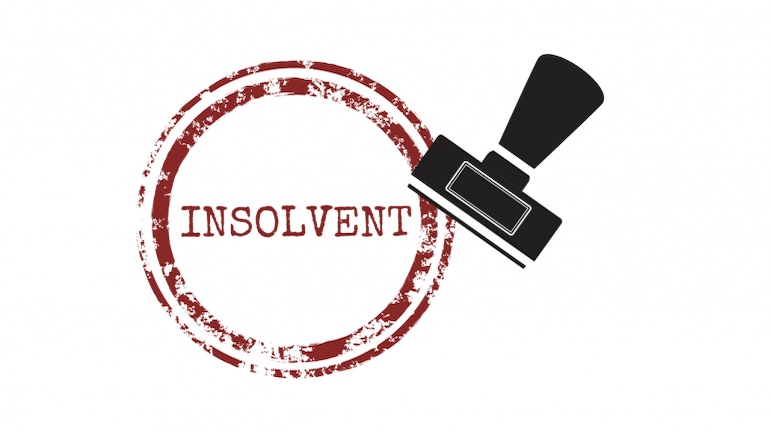



Hemant Kothari
In the wake of the economic distress caused by COVID-19, Finance Minister Nirmala Sitharaman recently announced that the Government of India is considering the suspension of Sections 7, 9 and 10 of the Insolvency and Bankruptcy Code, 2016 (IBC) for six months to avoid forcing new companies into insolvency for the defaults owing to the pandemic.
The support for such suspension amid the COVID-19 crisis stems broadly from the concerns regarding a massive increase in pressures of insolvency proceedings against companies, especially MSMEs (Micro, Small and Medium Enterprises) and the lack of new financiers and/or new buyers willing to support the successful insolvency resolution of the distressed companies, inevitably leading them into liquidation.
As for the first concern, the government has already provided significant relief by increasing the minimum amount of default to trigger insolvency proceedings, from the earlier Rs 1 Lakh to Rs 1 crore — that should alleviate apprehension of numerous filings.
Coming to the second concern, it is pertinent to note that the impression that the IBC mandatorily requires new capital or financing to repay old debts and new equity investment is misconceived. This understanding seems to flow from: (a) the widely-published success stories of the IBC, including the purchase of Essar Steel by ArcelorMittal, and Bhushan companies by Tata and JSW; (b) Section 29A of the code that debars promoters of an insolvent company to buy back the company and (c) very limited resolutions involving restructuring of debt instead of upfront repayment.
On the contrary, Section 12A of the IBC facilitates the corporate debtor through its management or promoters, to agree upon the restructuring of debt with the consent of 90 percent of the committee of creditors. The Supreme Court, in the Swiss Ribbons case, has affirmed that such settlement or restructuring can be agreed upon at any stage of the insolvency process. The National Company Law Appellate Tribunal (NCLAT), in the Sterling Biotech case, has further affirmed that the bar against the promoters in terms of Section 29A does not apply to settlements or restructuring under Section 12A.
Such restructuring, in addition to being time-bound, allows negotiations to be conducted in a formal setting leading to optimal price discovery and also decreasing concerns regarding vigilance for many bankers that are faced in restructurings or settlement outside IBC processes.
Conversely, it is important that the IBC continues to operate amid the pandemic owing to its certain, predictable and efficient framework. Going forward, time-bound restructuring and settlement of liabilities would be essential to kick-start businesses and avoid the lingering distress. This role of the IBC was foreseen by the Bankruptcy Law Reforms Committee (November 2015), whose recommendations form the basis of the code. The committee, in particular, noted that “(b)ankruptcy reforms are particularly important in avoiding extreme problems in a business cycle downturn or a financial crisis. A business cycle downturn or a financial crisis, will lead to certain firms failing. With a sound bankruptcy framework, these losses are clearly allocated to some people. (…) Without the predictability, events of downturns and crisis lead to greater instability in the economy. (…) Responses to this uncertainty can include capital flight, reduced investment because of increased saving, shorter credit lending and higher interest rates.”
The second utility of the IBC is in its mandate to run a corporate debtor as a going concern, thereby ensuring continued economic activity and employment, in a post-crisis scenario. The amendment to the IBC in December 2019 directs that no supply of goods and services, considered critical by the resolution professional to preserve the value of the company and manage its operations as a going concern, can be suspended or terminated, provided regular payments are made during the insolvency process. Accordingly, the IBC envisages resumption of normal economic activity by pausing disputes relating to defaults with the vendors and a formal mechanism for resolution of such disputes in a time-bound and efficient manner.
Finally, if anything, the current crisis demands not the suspension of the IBC but a shift from the presumption against the promoters and management as the wrong-doers, and consequently the suspension of Section 29A of the code. Nobel laureate and American economist Joseph Stiglitz has argued that in resolving insolvencies arising out of major macroeconomic disturbances, there should be a strong presumption in favour of the continuation of the same management and restructuring of liabilities with the creditors (2015).
COVID-19 is a macroeconomic disturbance which warrants faith in the current owners and management to participate in the insolvency resolution of their companies for optimal, efficient and quick allocation of losses and immediate resumption of economic activities at full throttle.
Hemant Kothari is Senior Associate, Chir Amrit Legal LLP, Jaipur, and Visiting Faculty, National Law University, Delhi. Views are personal.
Discover the latest Business News, Sensex, and Nifty updates. Obtain Personal Finance insights, tax queries, and expert opinions on Moneycontrol or download the Moneycontrol App to stay updated!
Find the best of Al News in one place, specially curated for you every weekend.
Stay on top of the latest tech trends and biggest startup news.